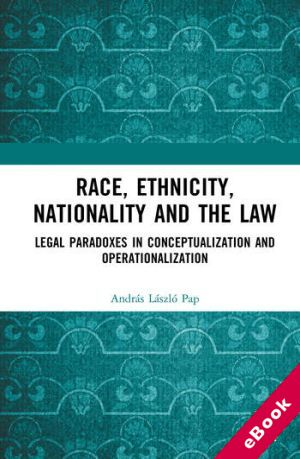
The device(s) you use to access the eBook content must be authorized with an Adobe ID before you download the product otherwise it will fail to register correctly.
For further information see https://www.wildy.com/ebook-formats
Once the order is confirmed an automated e-mail will be sent to you to allow you to download the eBook.
All eBooks are supplied firm sale and cannot be returned. If you believe there is a fault with your eBook then contact us on ebooks@wildy.com and we will help in resolving the issue. This does not affect your statutory rights.
This book provides a complex insight into how law, as a distinct tool and technology, conceptualizes and operationalizes race, ethnicity and nationality. The focus of the comparative project, by bringing examples from five continents and scores of jurisdictions, as well as showcases for hybrid, intersectional groups, is specifically the morphology and dynamics of legal categorization. Separate discussions concentrate on conceptualizing groupness and membership, as well as agency and contestation. The book shows that although identity politics has dominated the past decades, ethno-racial self-identification is not the only operationalizing model legal regimes apply, especially with the recent boost in artificial intelligence, and bio-genetic research. Examples for the “re-biologization” of ethno-racial conceptualization are brought from a wide range of legal regimes, including citizenship, anti-discrimination, asylum and indigenous law.
The work provides a journey through the administrative-political construction and contestation of ethno-racial classifications, with particular attention paid to the concept of free choice of identity, covering, and fraud, as well as the arbitrariness, historical path dependence and the role of merit in conceptualization. While the starting point of the book is to capture ethnicity as a category of law, it shows how legal conceptualization and operationalization is intertwined with categories of analysis and experience. The methodology applied is comparative constitutional and international law, but the research will have wider interdisciplinary appeal offering a novel perspective for a broad audience in social sciences and humanities.